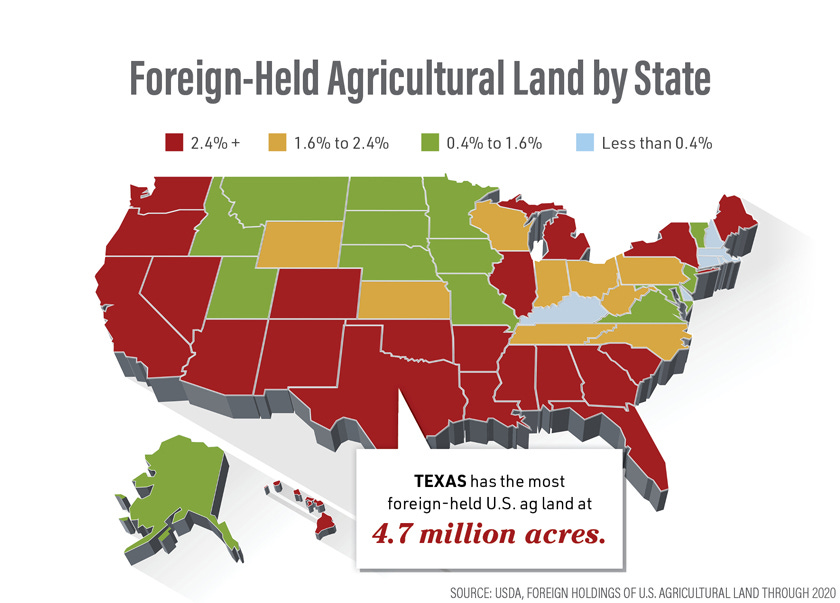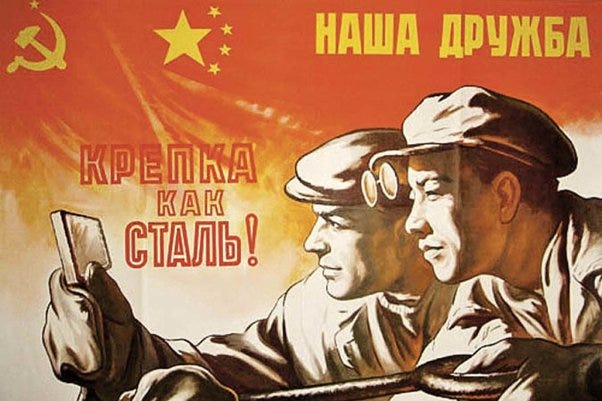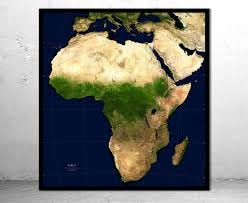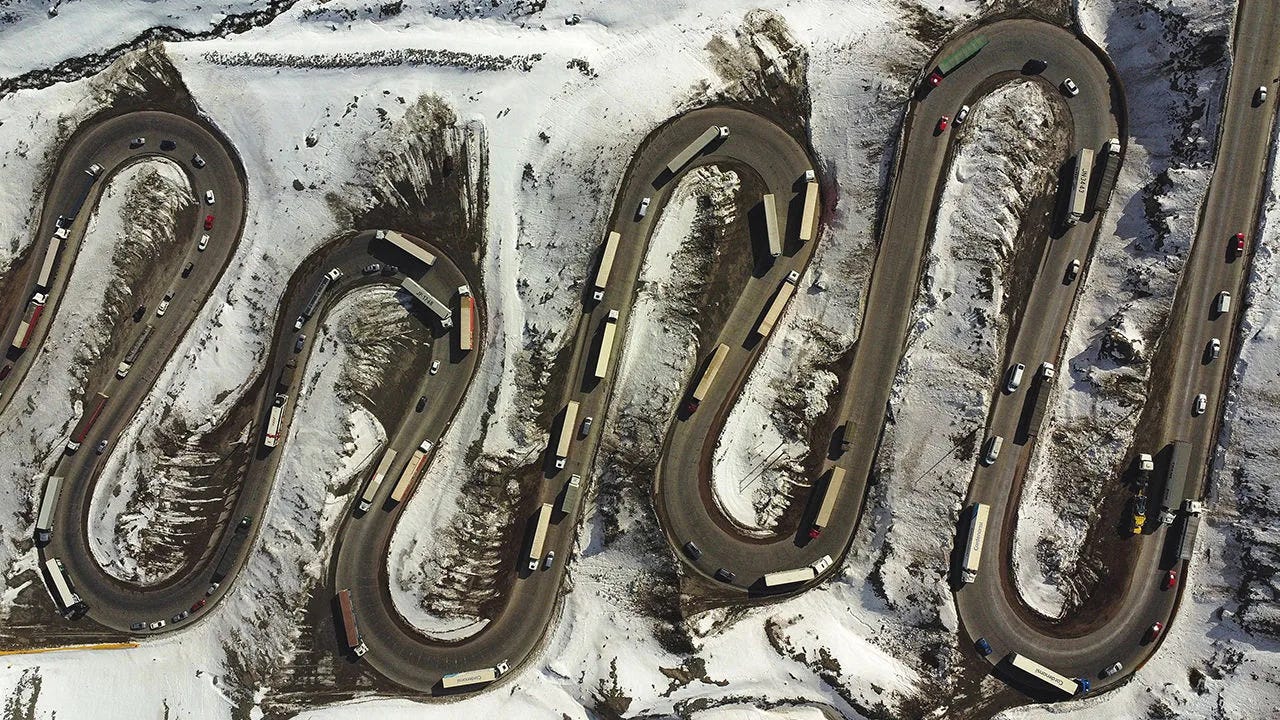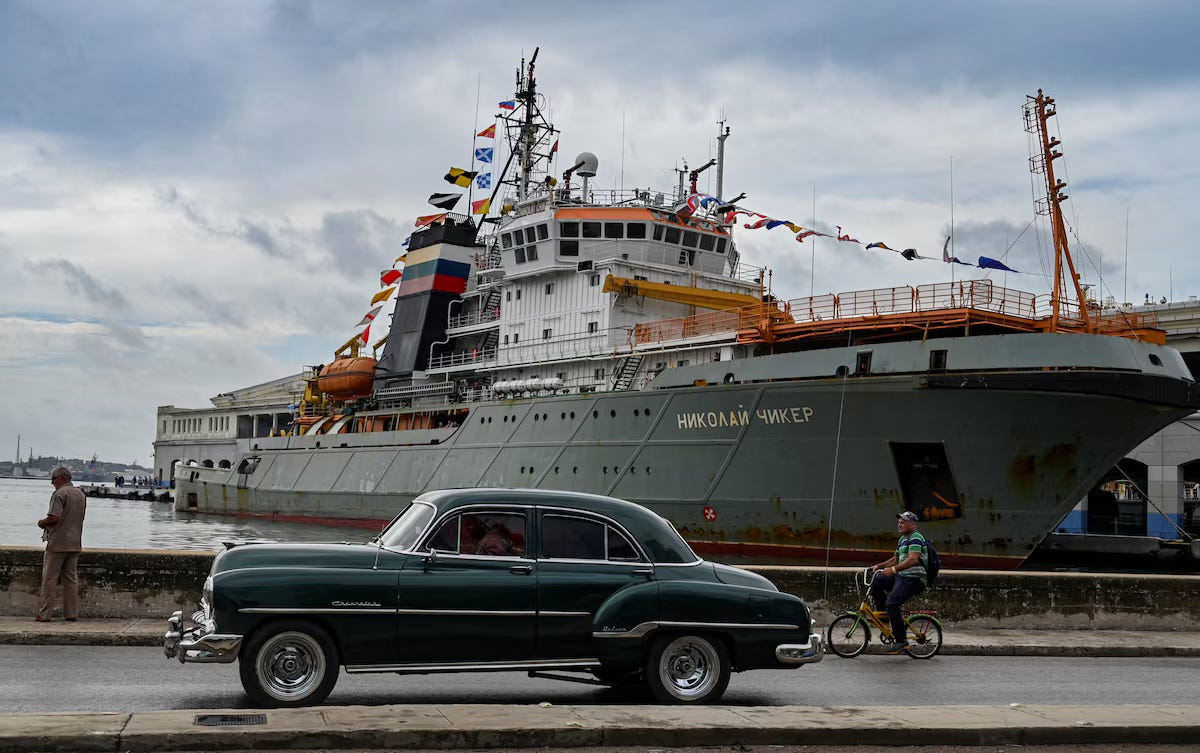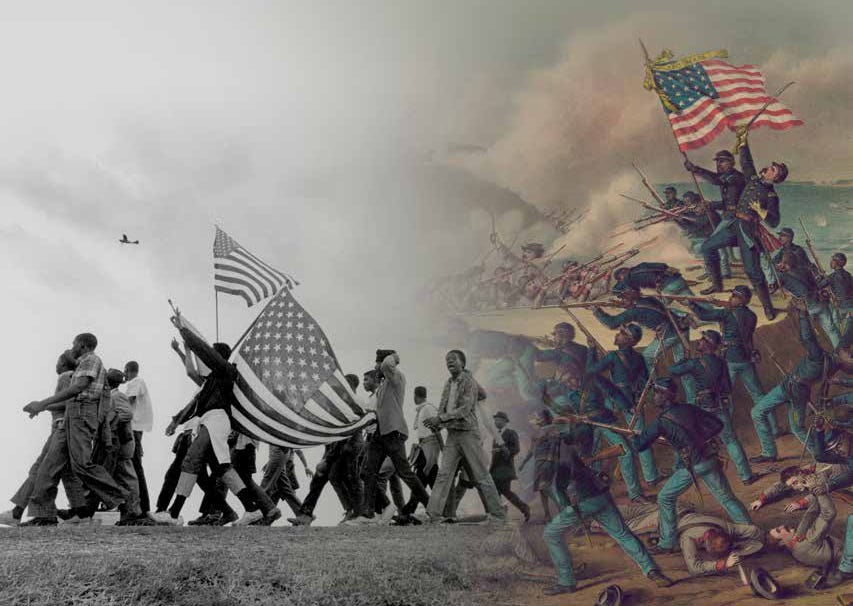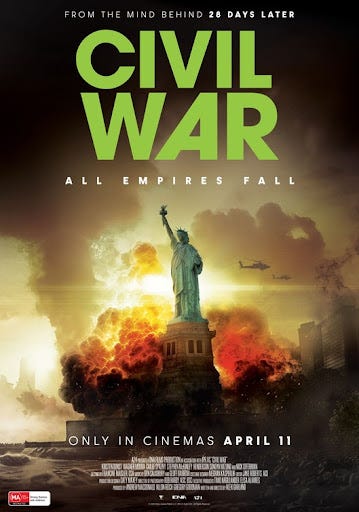1) We are not heading toward WWIII over farmland, please!
THE HILL: Global rush for farmland could trigger world war, documentary argues
CNN: China’s record heat and heavy rain raise food security concerns
FOREIGN AFFAIRS: Sleepwalking Toward War
New documentary discovers what’s been going on for quite some time regarding farmland and overseas purchases by food insecure countries — typically SW or East Asian. Doc looks good. It’s just the PR hyping of a future world war that is ridiculous.
Humanity has not yet been truly pressed to become super inventive on the use of land for farming. That progressive response is now unfolding around the world thanks to the macro-stressors imposed by climate change and the loss of farmland to development.
See China, for example, from my book America’s New Map:
China, as the world’s biggest producer, consumer, and importer of food, seeks to methodically shore up its security in that domain. One route is to position itself as the technological leader in transforming meat production from a water/grain/ farmland sinkhole into a laboratory-as-factory process. Beijing, which clearly views food security and national security as one and the same, formally called for rapid development of “future foods” (e.g., cultivated meat, plant-based eggs) in its most recent Five-Year Plan. As the biggest global market in both foods, such policies can easily become globalization game changers.
Beijing’s second track is to expand its farm footprint through overseas purchases of arable land. In doing so, China follows in the footsteps of other rich- but-food-insecure powers such as Japan, South Korea, Saudi Arabia, and the United Arab Emirates. A decade ago, China signed a deal with Ukraine to lease, for half a century, one-tenth of its arable land. That investment surely shaped Beijing’s muted response to Moscow’s brutal invasion of Ukraine: a short-term loss of imports balanced against preferring Moscow’s firm control of that breadbasket.
Farm-rich countries are just waking up to this overseas purchasing trend and they are already mounting barriers to that investment/trade. This film may well charge that trend some — find and dandy. But there is no reason to fear war per se.
China is suffering a tough drought right now, one that likely forces it back into some massive grain import flows that it has recently sought to limit. China won’t like that but it won’t be starting any war over it. Like energy, China will pursue ALL OPTIONS.
So, if you want to run with the sleepwalking-toward-war scenario, it ain’t over food but far more likely over Taiwan, where Xi is right that there are certain hardline elements in the West and the US that seek the big military showdown with China there.
I’m fine and dandy with that too.
Why?
Stable deterrence takes two. We hear about Xi’s timetable and “need” to grab Taiwan, so it’s fine that the Chinese hear plenty from our side about the “inevitability” of our needing to ruin the communist regime by embroiling it in an unwindable and super-bloody fight over Taiwan.
That’s how these things work: lotsa big talk on both sides and lotsa preparations.
What climate change will do to farmland around the world is to shrink it seriously across lower latitudes while opening it up — just as seriously — along higher ones.
Thus, it is the resultant people traffic that will create national security issues and conundrums. Because, done right, that’s resettling a whole lotta farmers around the world in a geopolitical challenge of an unprecedented nature.
2) Russia is racist? What’s that you say, fella?
NEWSWEEK: Chinese Outraged As Putin Ally Vows to 'Subjugate' Russia's Neighbors
The propaganda on Russian-Chinese love is vast; the reality is sparse. In Russian history, the East is full of “barbarians” just itching to overrun the country.
So here’s Putin’s issue: drumming up Slavic nationalism and pan-Slavism naturally dredges up a lot of historical xenophobia and racism.
Slavs (yes, their name is derived as you might suspect) hate being considered a lower civilizational category than Europeans (mostly Germans) and thus return the favor to the “barbarians” in the east.
So, no surprise, as Putin draws more deeply from that well, the resulting fervor can get out of hand.
But that’s what you get with that model of governance: the whole of Russian history is defined by the fear that, if we don’t conquer our rimlands first, they will swallow us whole!
Putin hasn’t changed that fear-threat reaction one bit; he just revived it.
3) Not in my underground bunker!
MIT TECHNOLOGY REVIEW: The world’s on the verge of a carbon storage boom
Interesting article about the debate on whether or not these schemes will work.
Prefer to use the MIT cite versus those of fossil fuel industry.
Worth trying? Yes. But jury is out, clearly.
4) Africa on the same page?
ALJAZEERA: Afrophobia is destroying the African dream
Hard to see the same page emerging when your environment is so sliced up like that. Plus, the Sahara expands southward as the lower-latitude green comes under far more environmental stress from climate change. Heading south only takes you so far — and not exactly to the promised farmland. So, northward migratory pressures are a given.
Story is about comments by Africa’s top billionaire at some African gathering:
Speaking at the Africa CEO Forum in Kigali, Rwanda, on May 17, Africa’s richest person, Nigerian billionaire Aliko Dangote, complained that he faces far more obstacles travelling around Africa than Europeans ever do.
“I have to apply for 35 different visas on my passport [to travel freely across Africa],” Dangote said. “I can assure you that Patrick [Pouyanne, CEO of Total Energies] doesn’t need 35 visas on a French passport, which means [he has] freer movement than myself in Africa.”
Even for an uber-wealthy businessman with near unlimited means like Dangote, the continent’s fragmented and discriminatory visa regime is clearly a considerable inconvenience. For millions of African migrants, however, it is a major obstacle to safety, stability, success and prosperity.
Indeed, stringent visa regimes discriminating against Africans are not only inconveniencing industrialists and harming the continent’s economic development, but also destroying migrant lives and dreams and hindering efforts to achieve true African unity.
Today, while most Westerners are free to roam the continent and exploit its socioeconomic potential with ease, Africans who want to move, for whatever reason, are swimming against the current.
I wrote about this in America’s New Map:
Globalization’s state-integrating dynamics so mirror our American Union’s long-standing practices for meshing our member states that we struggle to view them as anything but entirely normal. However, the basic freedoms that fuel US economic activity remain challenging concepts across much of the world.
Take unrestricted movement: the idea that you can be born in one state (for me, Wisconsin), go to graduate school in another (Massachusetts), let your career move you around (Maryland, Virginia, Rhode Island, Indiana, Ohio), and then retire somewhere else (Minnesota?) is something Americans take entirely for granted. Surprisingly few people in this world can claim similar rights. The EU only achieved “freedom of movement” across its member states in its 1992 Treaty of Maastricht. In China, movement is restricted according to the hukou (house registration) system that regulates migration between rural and urban areas.
Americans’ self-directed mobility incentivizes our member states to make themselves as attractive as possible to workers—a powerfully integrating force enabling a singular labor market spanning a vast array of distinct legal environ- ments. The trick? Your government must trust its own people.
Would most people welcome America’s version of interstate mobility? Absolutely. But without all the necessary rules and systems in place? That would easily destabilize most countries or regions. US-style globalization has spread such revolutionary aspirations: people have seen the future and want it now. As for the most ambitious? They vote with their feet, increasingly moving north- ward to the great hubs of legal free movement—North America and the EU.
With the stressors put on African governments already by migratory movements, it’s hard to see Dangote’s presumed vision being achieved any time soon.
Instead, I see a vertical hardening: Europe blocking North Africa and Europe subsidizing North Africa to block Sub-Saharan Africa, with eventually South Africa at the bottom being forced into a similarly tough stance.
5) LATAM just can’t catch a topological break
ECONOMIST: Embrace the neighbours: Latin America is the world’s trade pipsqueak
H/T Jeffrey Itell.
Latin America, by my calculation, features a trade integration rate of about 25-30 percent (value of intra-regional trade against total extra-regional trade). Take out Central America and the percentage drops considerably (17%) for South America alone.
The topological argument noted here: world’s longest mountain chain plus the world’s biggest rainforest chop up the landscape to the inherent detriment of trade and integration. Likely a big reason why no superpower ever arose there.
Meanwhile, the South American share of our immigrant pool rises: used to be near zero in my youth, now it is 6-7% of the total, surpassing immigrants from Europe since the end of the Cold War.
6) See! It’s no fun having somebody messing around in your backyard
WAPO: What are Russian warships doing in the Caribbean?
What’s so eye-catching about that photo isn’t the ship but the local auto. Cuba famously remains trapped in the 1950s when it comes to US cars, due to the embargo since the communist revolution six-plus decades ago. So, first glance here and you think we’re still stuck in the early Cold War years, which is somewhat apropos.
So what’s Putin doing here?
U.S. forces are keeping close watch on a flotilla of Russian warships that reached Cuba on Wednesday in an apparent show of force by President Vladimir Putin flexing his missiles in the Western Hemisphere.
The port call in Havana, Moscow’s longtime ally, comes less than two weeks after the Biden administration said it would allow Ukraine to use U.S.-provided weaponry against some military targets inside Russia.
The four Russian vessels arrived in Havana Harbor fresh from military exercises in the North Atlantic Ocean, Russia’s Defense Ministry said. They’re due to stay through Monday.
The ships aren’t carrying nuclear weapons, the Cuban and Russian foreign ministries have said, “so their stop in our country does not represent a threat to the region,” Havana said last week.
He’s yanking our chain, pure and simple.
A reminder, to be sure: we see the entire world as our backyard — an old Cold War habit. Always a shocker when somebody outside thus penetrates our true backyard.
7) The race war started by one mass shooting … Oh, that old chestnut!
DAILY BEAST: Gun Nut Plotted to Shoot Up a Bad Bunny Concert to Start a ‘Race War’: FBI
It never gets old: right-wing White racist armed to the teeth decides he wants to go out by triggering a race war through some mass shooting of Blacks.
Thus, the counter-struggle never ends.
The much hyped and hoped-for race war is a deep and abiding myth of the far Right in America: the great turning point back to a past that they view as more “American.”
With White Christian Nationalism so mainstreamed under Trump, we can only expect more of this sort of violence as Whites succumb to majority-minority status over the next two decades — sad to say.
8) America getting more real about its present and future role in Asia?
NYT: In China’s Backyard, America Has Become a Humbler Superpower
Good, broadly-framed analysis captured by the subtitle:
The United States no longer towers over the Asia-Pacific, dictating terms to its allies. Instead, it’s offering to be a teammate and share responsibilities.
I did a counting of all the foreign military bases in East Asia (and across the world) and here’s what I got:
First, America owns 92% of the superpower extra-regional military bases worldwide (746 of 817), with 8% going to Russia, China, India, and European powers.
40% of our bases are in 8 East Asian countries (291 bases, or 40% of our worldwide total)
In East Asia, we own 99% (291 of 293) of the foreign military bases, while European powers have the other two.
What that tells me is that America remains the hub-in-the-spoke of East Asian security — even as we move away from that rhetoric and the responsibilities implied:
“In the past, our experts would talk about a hub-and-spokes model for Indo-Pacific security,” Defense Secretary Lloyd J. Austin III said this month at a global defense conference in Singapore. “Today we’re seeing something quite different.”
In this new era, many countries are doing more, on their own and with U.S. help. For the first time, the United States is building nuclear-propelled submarines with Australia; involving South Korea in nuclear weapons planning; producing fighter jet engines with India; sharing maritime surveillance duties with small Pacific islands; and working with Japan on adding an offensive strike capability.
Okay, Austin is citing military force-building, where the locals are doing far more (still sounds very hub-in-spoke, though — as in, remove the US from this equation and this joint production evaporates). But presence-wise, the US dominates as the outside balancing power, which is crucial to those local powers seeking to stand up to China’s nibbling-like-a-silkworm passive-aggression throughout the region.
9) Canada decides that it is time to have that talk about America
POLITICO: Canada’s Big Worry: A US Civil War
And if we actually were an “empire,” the poster would carry a bit more weight.
The Canadian office that thinks ahead about bad things happening to Canada or impacting Canada has recently done some thinking about a potential US civil war.
Crazy?
Not in that line of work. NOT doing the thinking would be crazy, because, if it were to happen (low likelihood), the impact would be VERY HIGH. Scenario shops are built to work the low likelihood/high impact events.
But it is embarrassing, is it not?
10) Russia’s “Mini-NATO” is just a Mini Me of Putin
NEWSWEEK: Russia's Neighbor Sows Doubt About Role In Putin's 'Mini-NATO'
Not a new issue:
A military alliance formed in 1992, the CSTO [Collective Security Treaty Organization] also [in addition to Russia and Armenia] consists of post-Soviet countries Belarus, Kazakhstan, Kyrgyzstan and Tajikistan. An act of aggression against one signatory is considered an attack on all members, akin to NATO's Article 5, but there has been a question mark over Armenia's continued membership.
Armenia’s leadership is signaling it wants out on a permanent and clear basis. For now, the idea is floated but Yerevan seems committed to leaving.
Just a reminder that NATO’s superior brand, along with the EU’s, constitute the real threat to Russia’s still-disintegrating empire.
Our side doesn’t have to win anything; we simply need to be.
11) The scientists are prepping the bureaucratic battlefield
WAPO: Why scientists fear a second Trump term, and what they are doing about it
Interesting:
When the union representing nearly half of Environmental Protection Agency employees approved a new contract with the federal government this month, it included an unusual provision that had nothing to do with pay, benefits or workplace flexibility: protections from political meddling into their work.
The protections, which ensure workers can report any meddling without fear of “retribution, reprisal, or retaliation,” are “a way for us to get in front of a second Trump administration and protect our workers,” said Marie Owens Powell, an EPA gas station storage tank inspector and president of American Federation of Government Employees (AFGE) Council 238.
The agreement signals the extent to which career employees and Biden administration officials are racing to foil any efforts to interfere with climate science or weaken environmental agencies should former president Donald Trump win a second term.
This is good.
12) The Anthropocene wins, hands down
WAPO: This word was rejected by geologists. But it’s already taken over the world.
The geologists couldn’t agree on a clear start date, so what?
What matters is that humans understand what’s going on:
The name’s persistence speaks to a need for a cultural shorthand for referring to the big, complex ecological changes that are defining the present era, advocates say — something akin to terms like the Cold War or the Internet Age that came before it. Even if geologists say they cannot pinpoint its exact start, it is obvious to many who continue to use the term that the Anthropocene has begun.
It all begins with understanding, then a sense of responsibility for what has happened and what comes next, and then a sense of duty to shape what comes next.




